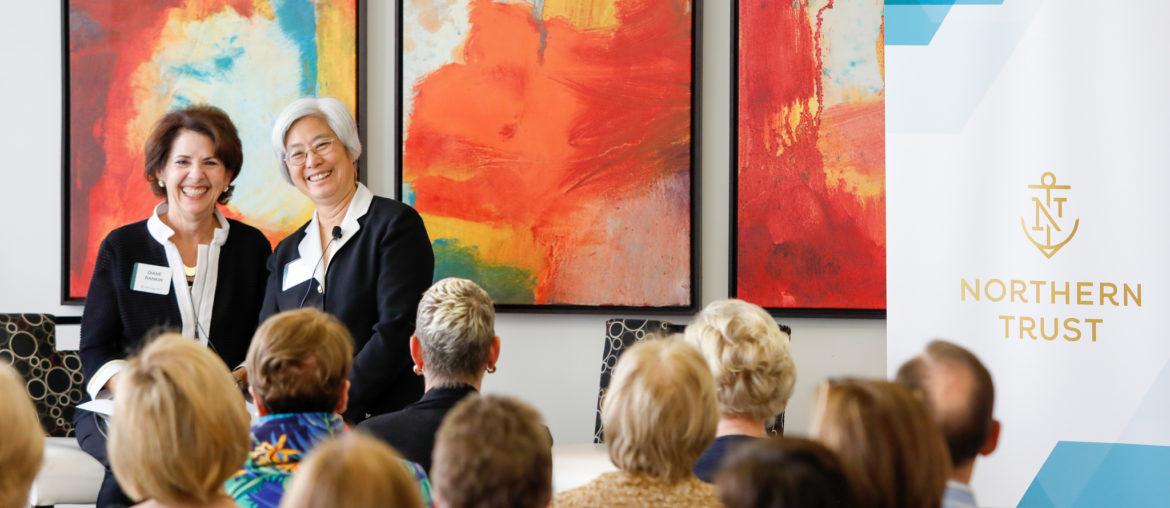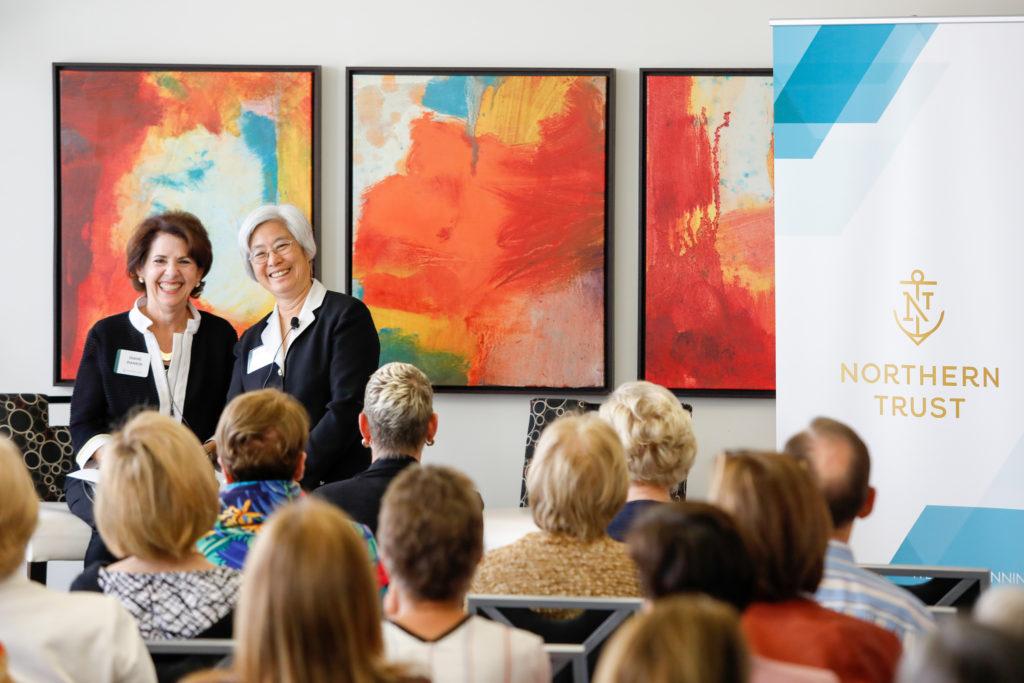
There is nothing I enjoy more than connecting friends and colleagues, especially when there is a good cause involved. So a few weeks ago when I connected two remarkable women, one a fundraiser for USC and the other a well known wealth strategist for Northern Trust, I was thrilled when I received the invitation for an event on Alzheimers the two partnered to put together.

It was a fantastic morning conversation with Dr. Helena Chang-Chui, a world renown researcher and a top Alzheimer specialist. She is the chair of the Keck School of Medicine of USC’s Department of Neurology and has authored over 182 publications on the topic and was fascinating to learn from, which is why I wanted to share.
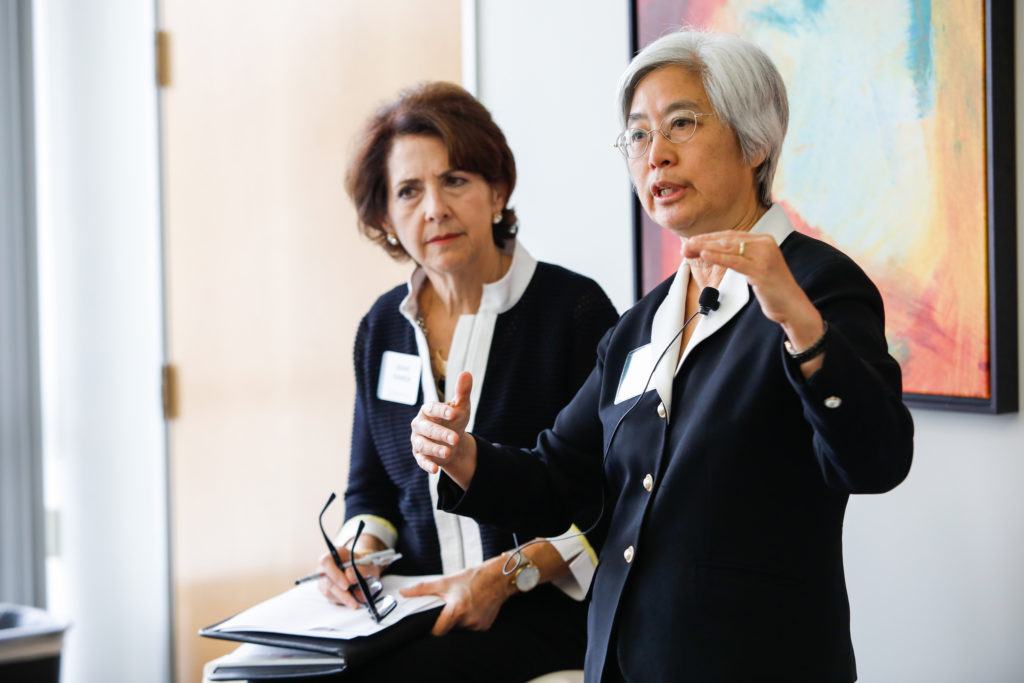
Every 66 seconds, someone in the United States is diagnosed with Alzheimers and chances are each of us knows someone who has been affected by this devastating disease. We learned that Alzheimers disease is the 6th leading cause of death in the United States and according to the Alzheimer’s Association there are currently about 5.5 million people currently living with the disease. Without successful treatments that number is projected to rise to about 13.5 million by 2050! The longer people live, the more Alzheimer’s disease there will be.
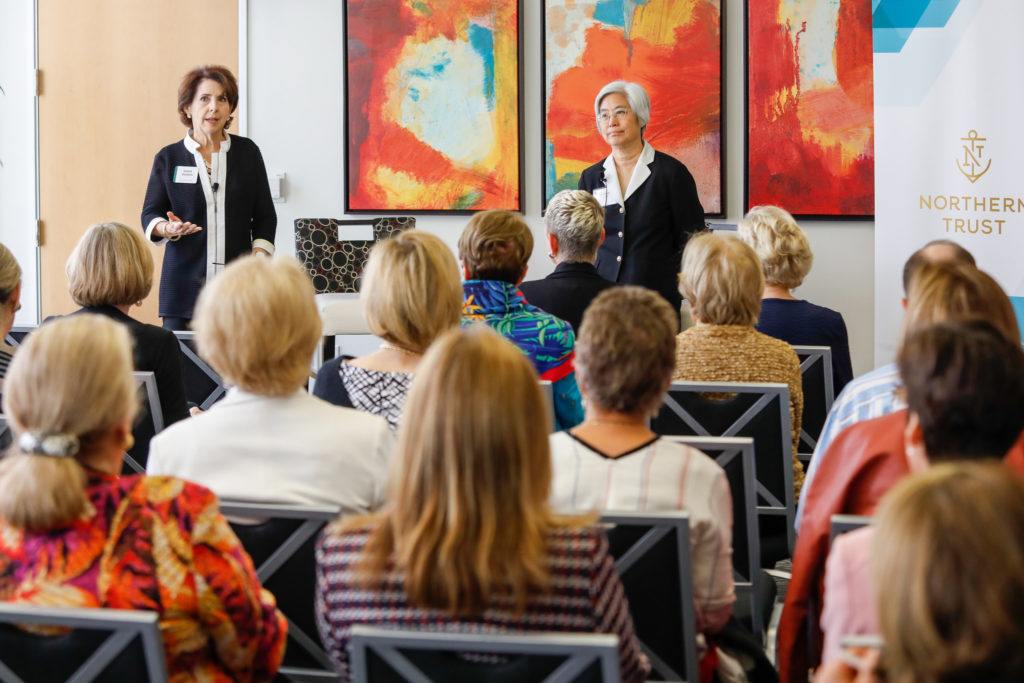
So that’s the bad news. Here is the good news:
The National Institute of Health recently allocated $1.3 billion to Alzheimer’s disease research which was $884 million more than ever before! Now the top researchers in the country Harvard, the Mayo Clinic and USC Alzheimer’s Therapeutic Research Institute will be working together with some of this funding to find a cure. In the meantime, Dr. Chui shared with us a few things we can all do to protect our mental health.
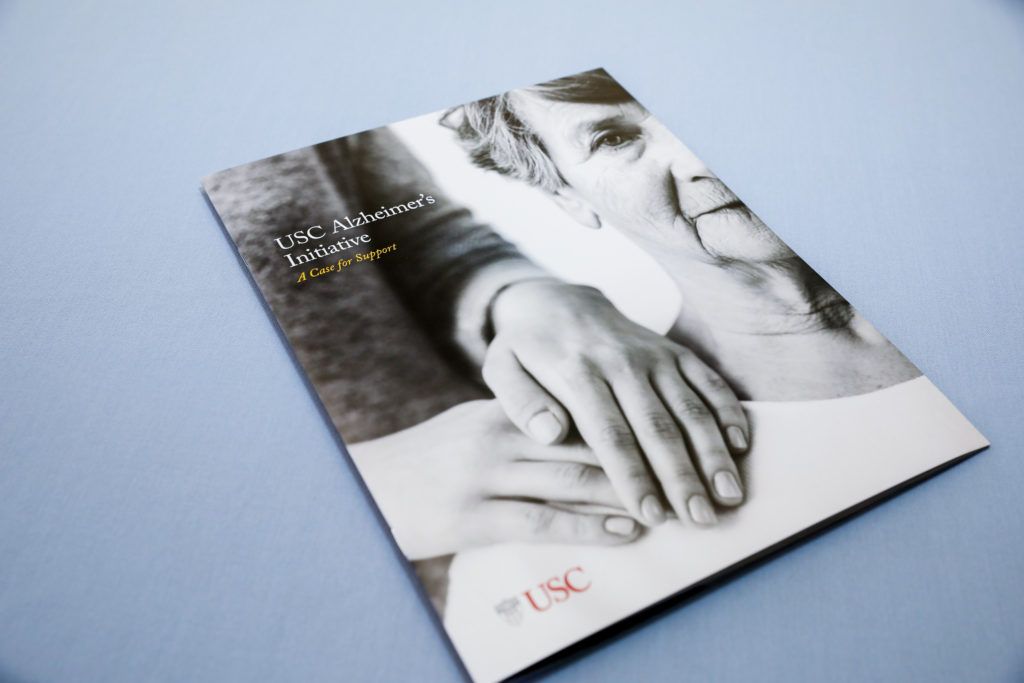
- Diet– A Mediterranean diet based on nuts, fruits, vegetables, whole grains, fish, olive oil, coffee and coconut oil has all proven to activate the brain’s metabolic function and may prevent or slow the onset of Alzheimers disease.
- Exercise– The brain’s processing speed can begin to slow down as early as 25 but exercise bulks up existing neurons and improves communication between brain cells. The Doctor said it is like a bank account where what you do now strengthens cognitive resilience later.
- Quality Sleep- Six to eight hours of sleep for adults is critical so that toxic proteins that are implicated in Alzheimers disease are flushed out during sleep. It is the bodies time of rebooting and sleep gives the body time to restore.
- Connect with Others-Relationships are good for the brain and the heart and current research suggest that there is a connection between social interaction and brain health. Being social connects neurons and activities with friends can give the brain added benefits.
- Managing Stress-High stress encourages behaviors such as poor eating habits, isolation, or decreased exercise all which increase the risk of dementia which could lead to changes in the brain.
The take away from this fantastic conversation with Dr. Chang-Chui was that we all need to proactive with our health and that includes our mental health as well. We can all take steps today to make tomorrow better for ourselves and our loved ones.
charity matters.

